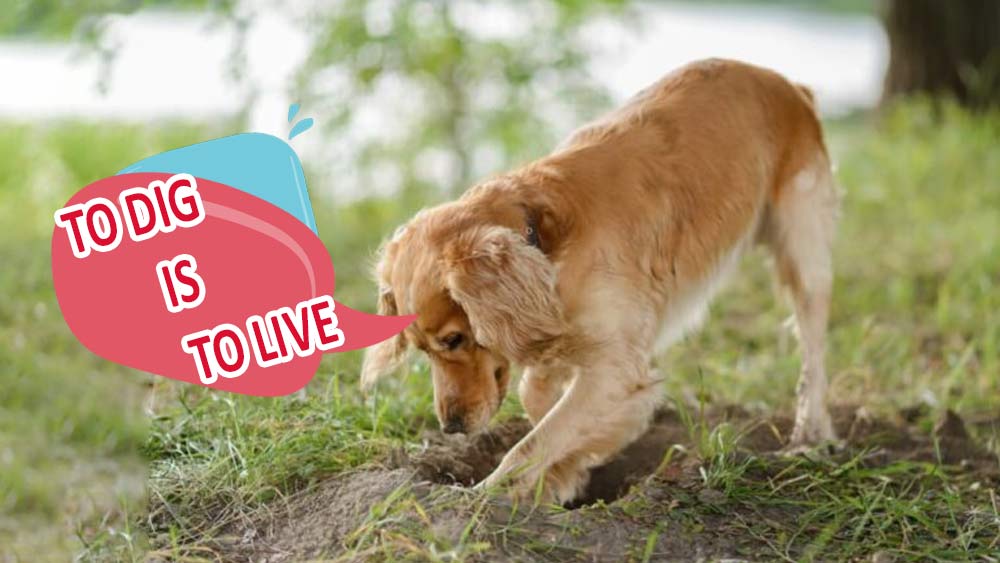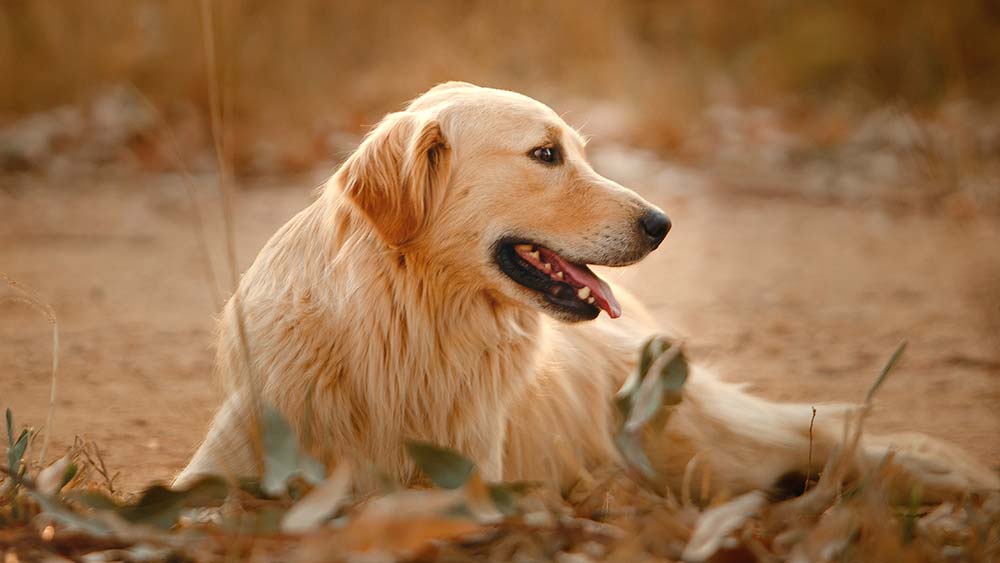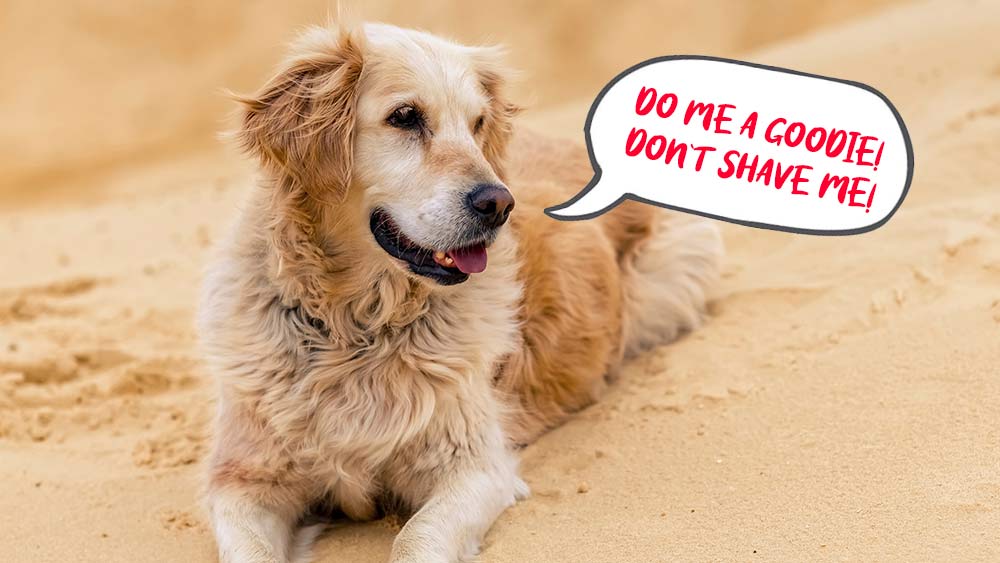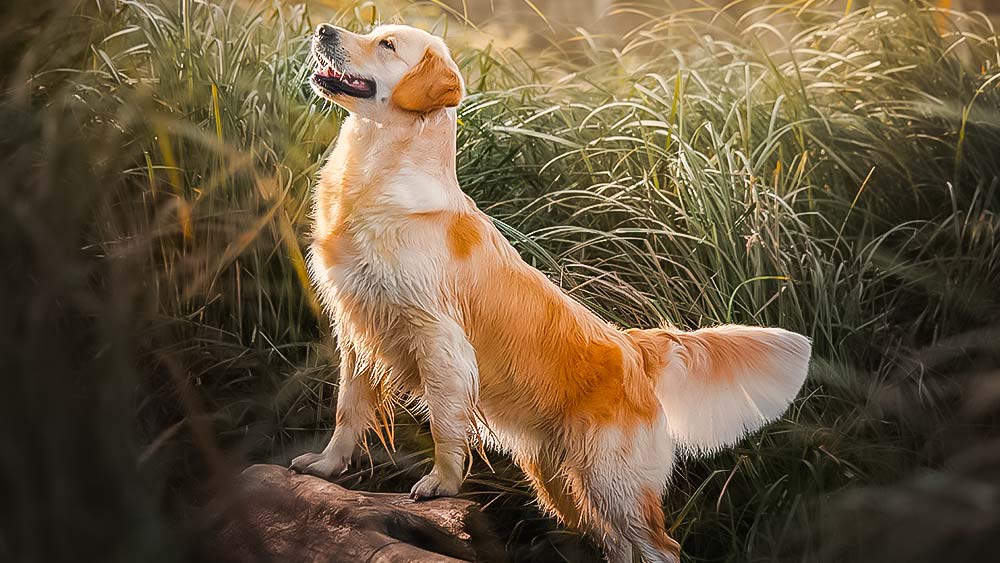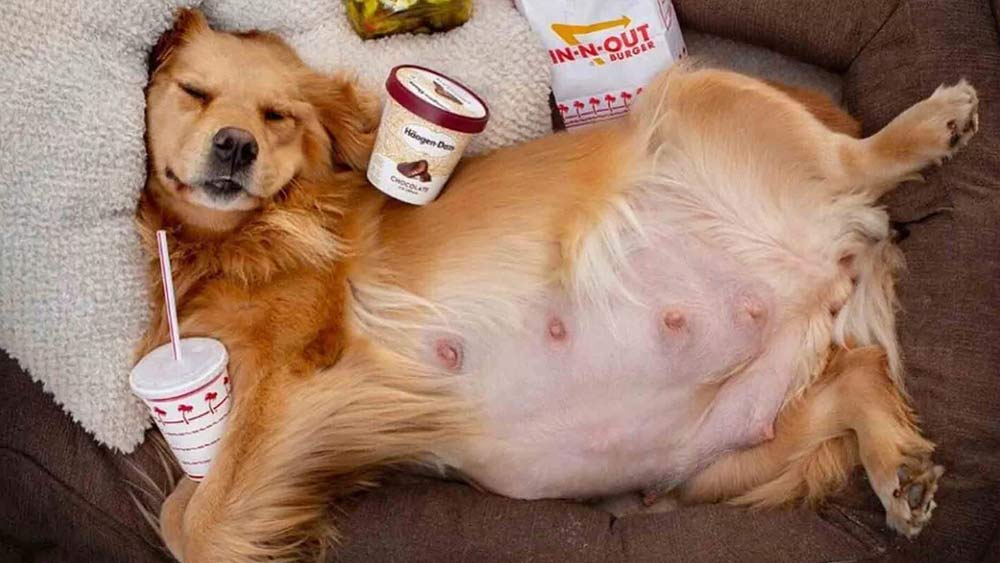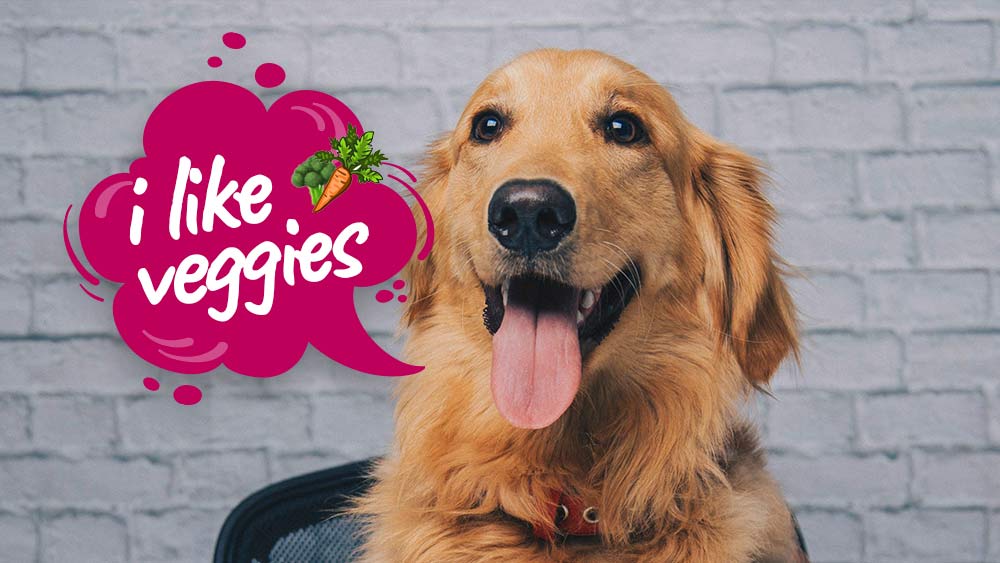Powerful, friendly, energetic dogs with voracious appetites and golden retrievers make great pets. Your golden retriever’s nutritional demands may be met, and its golden hair can be kept shining by feeding it high-quality food that has all the components it needs to grow in the appropriate proportion. If you want your Golden Retriever to remain trim, muscular, and full of life, monitoring his or her weight to stave off any health issues like hereditary joint pain is important. It’s important to feed your Golden Retriever the right food. You may either gain or lose weight on any given diet.
The calories in the food you give your golden retrievers are the vital elements necessary for growth and development. These nutrients must be provided in enough quantities for the body to prosper.
However, the specific nutritional needs of your dog will change with variables such as the dog’s size, age, level of activity, etc. Whether you’re serving your dog a wet or a dry meal, you’ll want to be sure it has all the nutrients golden retrievers needs.
In order to thrive, your pet needs a diet rich in carbohydrates, lipids, proteins, vitamins, minerals, and water. Remember this while you shop for pet food.
Water
Up to 80% of a mature dog’s weight comes from water. Without water, your dog won’t be able to perform its job. For example, water helps with digestion, regulates core body temperature, carries nutrients to cells, and much more. Your dog should have access to a large quantity of clean water daily. Your dog needs one ounce of water for every pound of body weight daily; however, you should talk with your physician for precise recommendations.
Fat
Fats protect the body’s internal organs, regulate body temperature, and provide fuel for the nervous system. A lack of body fat might also cause your dog to have a lackluster coat and dry, itchy skin. A dog’s diet must include essential fatty acids that the dog’s body can’t produce. Essential fatty acids are what you need to be healthy.
It’s also very vital to remember that the caloric content of pet food is determined in a slightly different way than that of human food. Each gram of protein and carbohydrate has a value of 3.5 calories. There are 8.6 calories in every gram of fat. This accounts for the fact that the ingredients in pet food tend to be less processed than those in human food.
Your dog should avoid certain fats. Pay great attention to the origin, kind, and amount of fat in the dog food you choose.
The best source of fat:
- Chicken Fat: Chicken fat is a common and inexpensive component in dog food. This sort of fat is great for most dogs since it comes from a prey animal. Keep in mind that even a dog with an allergy to chicken may safely eat chicken fat. The absence of this protein in the fat prevents a negative reaction in canines.
- Fish fat: The fat found in fish oil is often used as a last resort. A dog food recipe will often have a higher concentration of one particular fat than another. Fish oil is often used because it is rich in omega fatty acids. Omega-3 fatty acids are essential to the skin and coat health of a dog. Some research suggests that it may also help regulate the immune system and reduce inflammation. Puppies may need it because of how it shapes their brains.
- Beef fat: is used much, much less often than chicken fat. However, it might be used in beef-flavored dishes. The taste, texture, and appearance are all extremely similar to chicken fat. You can’t find a better natural fat source than this. Most dogs have a little problem digesting and using beef fat. Since beef fat has no protein, it may be safely fed to dogs that are sensitive to the meat.
Protein
Proteins are essential for cellular metabolism and the formation of all tissues and organs (skin, nails, muscles, and bones). Because the body cannot store protein, it requires a constant supply. Canines can’t survive without the full complement of amino acids, which they need to manufacture the proteins they need. The canine body can create around half of these amino acids on its own, with the remainder coming from the food your dog eats on a regular basis. In order to maintain good health, your dog needs a steady supply of necessary amino acids, which can only be provided by the food you feed him. It’s crucial to have enough of each essential amino acid and to have it in the right proportion.
To ensure your dog gets enough protein to power its day, you should feed them a diet that has natural, high-quality protein as the first ingredient. Whether you feed your dog fish, beef, or chicken depends on your dog’s personal tastes and any special nutritional needs the protein type may satisfy.
With this in mind, here are several protein sources that may be found in a variety of commercial dog meals.
-
Eggs
Eggs are an excellent source of protein and can be included in many homemade diets as well as certain commercial dog food formulas, but they may not be the first item that springs to mind when thinking of the best protein sources for dogs. Prepared eggs may really provide more protein to a dog than raw meat does.
-
Fish
When most people think of giving fish to their pets, they immediately picture cats. However, fish is a great source of protein for dogs if prepared correctly. Several popular brands of dog food have formulas that include fish or fish powder, with salmon being the fish of choice due to its high omega-3 fatty acid content. —-
Muscle meat, if you will. Meat from other parts of the animal, including the thigh or the area surrounding the ribs, is also included.
Protein extracted from plants. This umbrella term encompasses a wide range of protein foods derived from animals. A few examples include seafood, pork, beef, and chicken (chicken, turkey, and duck). in addition to the muscle meat and byproducts generated from them, are all healthy sources of animal protein.
Grains and Oilseeds. Soybeans, maize, and wheat are just a few of the grains and oilseeds that are rich in protein.
Carbohydrates
Carbohydrates, which include starch, sugar, and indigestible fiber, are another kind of macronutrient. Carbohydrate-based meals are the main source of glucose, the “fuel” that the body uses. Carbohydrates may be found in foods, including vegetables, fruits, beans, and gluten-free grains. Remember that fruits and vegetables are “dog-friendly,” including those like as
-
Carrots
True, carrots are good for golden retrievers. If you slice it up into small pieces or make it into sticks, it may be a tasty snack.
-
Celery
In small amounts, dogs can eat celery. It’s easy to digest when it comes in little, chewable pieces. Dogs may urinate more often than usual if they consume too much celery.
-
Cucumber
If you remove the peel of a cucumber and cut it into little, chewable pieces, your dog may like it, much like carrots. Avoid pickled cucumbers altogether because of their excessive salt and sourness.
-
Broccoli
The percentage of broccoli in your dog’s meal might be as low as 5%. Consumption of broccoli heads should be approached with caution due to the potential for gastrointestinal distress.
-
pea
Peas are one of the few vegetables that may be given to your dog without worry.
-
Potato
Both sweet potatoes and ordinary boiled potatoes are good for your dog’s health. Put it in the oven or on the stove and cook it, but don’t add anything more to it.
Raw potatoes (or any plant based on potatoes) should not be fed to dogs since they contain solanine, much as tomatoes.
Source of Carbohydrates in fruits
-
Apples
Apples have been shown to have anti-cancer properties in addition to their benefits for blood sugar regulation and cardiovascular health. In addition to relieving hunger, the high fiber content of apples helps ease digestive issues, including bloating and gas. You may safely give your dog an apple.
-
Banana
Bananas are high in fiber because of the many banana peels that make up the fruit. It also contains significant amounts of vitamins A, B, and C, making it a healthy addition to any diet. Bananas are a good source of minerals, including copper, magnesium, manganese, and potassium.
Also, feeding your dog bananas helps prevent several life-threatening conditions, such as diabetes, cancer, and heart disease.
-
Watermelon
Watermelon is another fruit that is good for your dog since it contains anti-inflammatories and antioxidants. Juicy, sugary, and very refreshing, it’s just what your dog needs to quench his thirst.
-
Pineapple
Pineapple is a fruit that helps decrease inflammation because of its high vitamin C content and antioxidant properties. It also contains an enzyme with the ability to reduce the severity of arthritic symptoms and inhibit the growth of tumors.
Vitamins
Vitamins are an important nutrient necessary for a healthy dog. Since the human body cannot synthesize vitamins, food is the only method to ensure adequate vitamin intake. Certain vitamins are essential for maintaining a healthy neurological system and proper blood clotting.
-
Vitamin A
Carrots, in case you were wondering, are a good source of vitamin A, which is necessary for healthy eyes. This fat-soluble vitamin is crucial for normal development and growth, as well as for the immune system and cellular health.
-
Vitamin B
The B-vitamin family is very important for your dog’s well-being. To help control energy and glucose metabolism, thiamine helps activate ion channels in brain tissue. Eggs, yogurt, goat milk, and fresh raw or lightly cooked muscle meat are the best sources of vitamin B.
Vitamin B6 is crucial in many ways. This vitamin plays a crucial role in several biological processes, including glucose generation, nerve and hormone regulation, immune system function, niacin synthesis, and gene activation.
Minerals
In order to keep its metabolic processes running smoothly, your dog’s body needs minerals, which it can only receive through food rich in particular minerals. Bone development wound healing and oxygen distribution are just a few of the numerous processes that rely on minerals. Innumerable mineral forms may be found in several food options. Meat and bone, for instance, have high concentrations of phosphate and calcium, respectively.
Including all of these in your dog’s diet will ensure their continued happiness, health, and longevity.
The best source of mineral
Consuming too much of any of these nutrients may cause nausea, vomiting, and diarrhea. As a result, remember to give your dog small meals.
-
Iron
Iron helps provide oxygen to muscles and organs, making it crucial to their proper functioning.best source of iron are green vegetables, beef liver, raw egg yok.
-
Selenium
Because of its antioxidant properties, selenium helps protect cells against the kind of oxidative damage that may lead to inflammation, cancer, and the accelerated aging that comes with it.selenium like meat and other “natural” food sources or eggs.
-
Zinc
Betters the health of your dog’s skin and coat, as well as its defenses. Sources of zinc, are
Red meat includes beef, plus duck, chicken, lamb, and pork.
Fish including salmon and sardines.
-
Eggs
Nuts like cashews and almonds.
Seeds include pumpkin, sesame, and hemp.
-
Copper
Promotes iron absorption, which is critical for melanin formation and wards off anemia .best sources of copper are meat, liver, fish, whole grains, and legumes.
Read More: The Benefits of Probiotics for golden retrievers
Fiber
Even though fiber is sometimes overlooked, it is an essential part of a dog’s diet and provides unexpected benefits. Fiber is entirely vegetarian, and there are many nutritious ways to add it to your dog’s diet, like sweet potatoes, green beans, pumpkins and apple slices. Fiber quality is also essential, so ensure your dog gets nutritious ingredients rather than cheap fillers. Whole sources, including whole fruits and vegetables, are your best bet regarding fiber.
The average fiber content of commercial dog food ranges from around 2% to 5%.
Dog foods labeled as “high fiber” typically include between 6 and 10 percent fiber.
Carbohydrates in your dog’s food should be rich in fiber rather than refined grains, which are high in calories but low in fiber.
Read More: Benefits of Fiber for Golden Retrievers (0 to 100 explained)
Can you explain the meaning of “life-stage nutrition”?
Different dogs have different nutritional requirements at different ages, so it’s not always best to feed them a meal that’s meant for all stages of life. Normal dog food may not provide enough nutrients for a growing puppy, a pregnant dog, or a nursing mother. However, the same all-purpose food may include too many nutrients for a senior dog or a dog that seldom gets any exercise. Nutrition experts agree that feeding your dog appropriately throughout its life (puppy, adolescent, pregnant, adult, senior) is the best way to ensure your golden retriever enjoys optimal health and longevity.
What can I do to improve my golden retriever’s diet?
Dog food is a very personal thing, but moderation is the key. Excessive consumption of any food group is harmful to the dog
.Providing your dog with a portion of healthy, well-rounded food is one of the greatest ways to ensure he or she stays in good shape.
Conclusion
Nutrition is providing your golden retrievers with the fuel they need to reach their full genetic potential and maintain an active lifestyle for their whole life. Because doing so would take whole volumes. Dogs have very specific nutritional needs.
To find out what kind of food is best for your dog, particularly if it has health concerns like digestive difficulties, see your vet. A veterinarian can advise you on how much and what kinds of food are best for your dog if you’re not sure.
Read More: 15 Signs That Its Time To Visit The Vet Immediately
Read More: 7 Nutritional Needs of a Senior Golden Retriever
Read More: Best Diet for Pregnant Golden Retrievers (0 to 100 explained)
Read More: Best Supplement Guide for Golden Retrievers! (0 to 100 explained)







